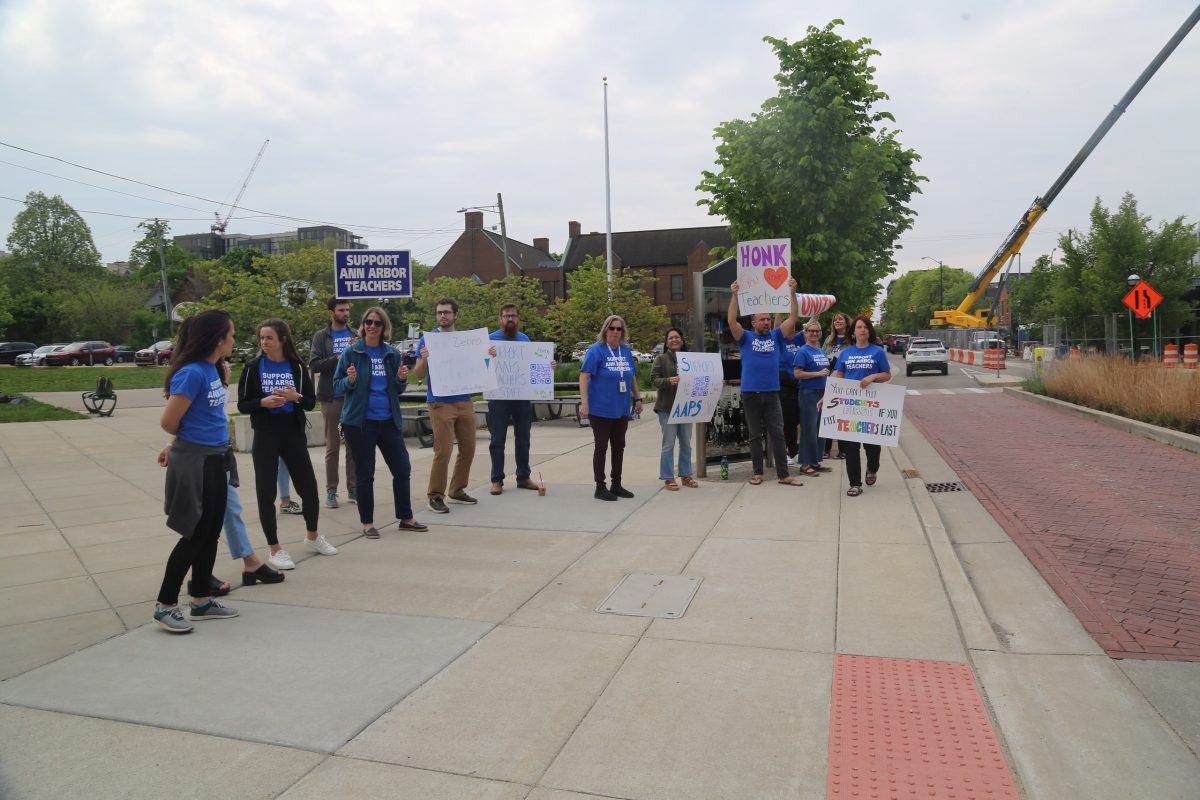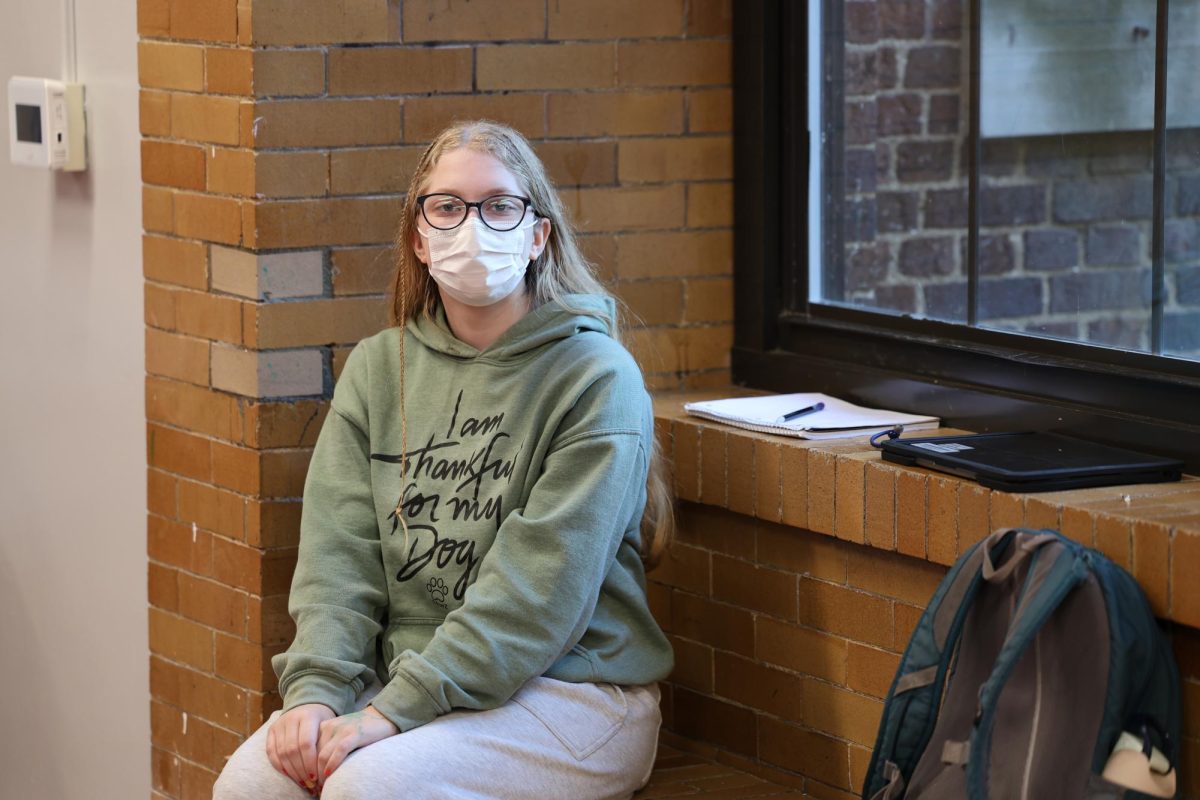“According to the financial analysis, the district will need to cut approximately $25 million from the 2024-25 operating budget to comply with state and Board of Education requirements.” On March 13, 2024, Interim Superintendent Jazz Parks sent out a letter to all students, families, teachers, and administrators in the Ann Arbor Public Schools district, conveying that AAPS is in extreme debt.
What put our district so deeply in debt? Over the past 10 years, the amount of staff in the district has increased by 480 (417 of them being teachers), but the number of students in the district in the past 4 years has decreased by 1,123. With the increase in expenditures due to the addition of many new employees, coupled with the decrease in revenues due to many students leaving the district, not to mention higher operating costs, Ann Arbor Public Schools has been falling deeper and deeper into debt over the past 10 years or so. But around March of 2024, Ann Arbor Public Schools was at its lowest point.
What does this mean for the district? After a series of meetings held by AAPS, attended by teachers, staff members, parents, and students, the district has approved a comprehensive budget program. This program involves many short and long-term actions, with the goal of cutting around $25 million from the district’s current budget. Some of these actions include eliminating the elementary school world language program, eliminating A2 Virtual for elementary schools, and closing middle school pools. However, the most controversial plan the district has imposed is to reduce the district’s debt by laying off many teachers.
AAPS is eliminating 141 employees in the district, which is approximately six percent of AAPS’s total workforce. The decision to fire this many staff members puts tons of people working in the district at risk. Staff members who constantly work to ensure that students have an exceptional education, who devote themselves to the well-being of our community, and who guarantee that our city’s education system is up and running, are suddenly at risk of being laid off.
Liz Stern, one of two union representatives from the teacher union at Community High School, expressed the dangerous impact that getting rid of employees, particularly teachers, would have on our schools. According to Stern, teachers are the most essential part of schools, and getting rid of teachers would jeopardize our district.
“Students, they don’t need Schoology, they don’t need a computer. They don’t need so many things,” Stern said. “They need a teacher in front of them. That’s what they need.”
In addition to constantly working during school hours by teaching lessons, helping students, etc, teachers work very hard by contributing to the well-being of our school community after the school day is done. Outside of school, working way beyond the hours laid out in the teacher contract, teachers are always grading, planning, attending students’ events, and responding to students’ emails, along with so many other things.
“Teachers do so much that goes beyond the contractual obligations that are just never noticed because we just do it for free,” Stern said. “We do it because we want our schools to run well. We want our students to be happy. We want our students to have experiences beyond the classroom.”
To stand up for teachers’ rights, and make it known that teachers do so much for schools beyond their working hours, teachers have proposed only working during their contract hours, meaning that as soon as they finish working the number of hours laid out in their contract during the school day, teachers won’t work anymore.
“[By working to what’s in our contract hours] we’re not necessarily protesting to say we don’t like this school that we work at,” Stern said. “It’s drawing attention to the fact that teachers are doing things outside of their work time for no money.”
Stern believes that not working beyond teachers’ contracts would be a way to draw attention to the fact that teachers do so much that goes beyond their contracts, but since she thinks that this mild protest would be a huge blow to students along with the rest of AAPS’s community, she is happy the faculty did not take this step.
“The disadvantages [of only working contract hours] would be to the students because what’s happening is that teachers are not running clubs, teachers are not chaperoning, teachers are not literally going to graduation,” Stern said. “That’s a disadvantage to us and to the students because we like to do those things. We want to see our students, we want to see them doing their extracurriculars, we want to help them and make sure that they are understanding.”
In spite of the laying off of many teachers, teachers are continuing to hold clubs, attend student events, and help students outside of school. In spite of the laying off of over a hundred teachers in the district and all of the teachers’ actions being overlooked, teachers are continuing to work beyond the hours laid out in their contracts. Why are teachers doing this? It’s because they genuinely care. They genuinely care about the well-being and education of students. They genuinely care about supporting students inside and outside the classroom.
Math teacher Michelle Yager, the other representative of the teacher union at Community, agrees that teachers’ labor outside of their working hours is essential to help students and to form relationships with them, even though teachers don’t get paid for it.
“The thing about being a teacher, especially being a teacher at Community, is that you do care and you want to be open, and you want to have input and interactions with your students and with families,” Yager said.
This financial crisis is thus not only harming teachers. It’s not only the teachers who will suffer because they’re at risk of being laid off. Firing teachers is also going to affect students, parents, and our community as a whole. Teachers are like maps: the constant support and information they give to students offer guidance to students whenever they start to get off track or feel at loose ends, just as maps lead travelers in the right direction whenever they’re lost. The laying off of teachers will deprive students of this necessary support.
“This is [students’] district too. These are their schools, and students need to be aware of the power that the central administration has. They need to because it’s going to affect them,” Stern said.
The laying off of teachers also affects students’ parents, whose children would lose support. In this financial crisis, which adversely affects teachers and families alike, we must realize that we’re all in this together and must support each other. We must stand firm with each other and find solutions together.
“As long as staff, as long as paraprofessionals, as long as OP’s, students, and families, as long as everyone who’s been impacted, who’s on the losing side of this budget fall, as long as we don’t go at each other and we don’t throw each other under the bus, saying things like Community should close; as long as we don’t attack each other and we stand firm and we all are like no, we’re not going to get exactly what we want, but we will still be okay, then we quote win,” Yager said.
What can we do to help and express solidarity? Students can write messages to the Board of Education to protest teacher layoffs and express how important teachers are to them. Students can protest alongside teachers. Students can also do simpler things like offering teachers support. In these ways and others, students and families can play an instrumental role in helping teachers get through this financial crisis.
“Students and their families have so much power in the school district. But they need to use their power for good in this instance. [Students and families must] recognize that teachers are doing their best and to redirect their frustrations at the board, to write letters, to stand with us if and when we picket, to send commentary to the Board of Education, and if you can’t make it there physically, you should send in comments saying like hey, teachers and students are suffering because of your decisions as a board,” Yager said. “Teachers and any staff, we just need empathy. We need care and understanding.”
We’re all in this together. Laying off teachers only makes the crisis worse. With pink slips starting to come out, it’s more important than ever that we express our solidarity with teachers. Whether it’s writing directly to the central administration to protest, or simply putting a ‘Support Ann Arbor Teachers’ sign on your front lawn, we need to find ways to support one another during this time.
“We all need to stand together,” Yager said. “Students, staff, family, we need to stand together and realize that we’re all under the same pressure, it’s just impacting us in different aspects of our lives.”










